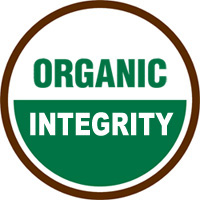06
Nov
Take Action: Tell Your U.S. Representative to Support Organic in the Next Farm Bill
(Beyond Pesticides, November 6, 2017) The next Farm Bill will be up for negotiation soon. Bi-partisan legislation to address two issues that are important for organic agriculture –increasing funding for organic  research and strengthening enforcement of the organic standards:
research and strengthening enforcement of the organic standards:
- The Organic Agriculture Research Act (H.R. 2436) will provide $50 million in funding annually for the USDA’s flagship organic research program, the Organic Agriculture Research and Extension Initiative (OREI).
- The Organic Farmer and Consumer Protection Act of 2017 will improve oversight of organic imports.
This action will allow you to send messages to your U.S. Representative requesting that they co-sponsor the bills or thanking the member if she/he is already a co-sponsor.
Organic is one of the fastest growing sectors in U.S. agriculture. The bi-partisan Organic Agriculture Research Act (H.R. 2436) introduced by U.S. Representative Chellie Pingree (D-ME) will help more farmers transition to organic production in response to growing demand in the marketplace. Organic research helps farmers become more productive, efficient, and profitable and leads to the development of new agricultural practices that can be used by conventional and organic farmers alike. Unfortunately, over the past five years, while overall funding for agricultural research has grown significantly, funding for organic research has stagnated. This bill would go a long way toward closing that gap. The Organic Agriculture Research Act has 39 co-sponsors, and the list is growing.
Another bill, the Organic Farmer and Consumer Protection Act (H.R. 3871), introduced by Representative John Faso (R-NY) is needed to strengthen oversight of the $47 billion organic industry. Strengthening enforcement of the organic standards, especially for imported organic products, is critical to safeguard the integrity of the organic label and to ensure consumer trust. A recent Washington Post investigation and USDA’s own investigations have shown that some imported organic products have been fraudulently labeled. A report from the USDA’s Office of Inspector General (OIG) revealed areas that need to be improved in the oversight of international organic trade and the enforcement of organic standards for imported organic products. Organic farms and operations that comply with the stringent organic standards are undercut when they are forced to compete with fraudulent products in the marketplace. The Organic Farmer and Consumer Protection Act has 20 co-sponsors, and the list is growing.










